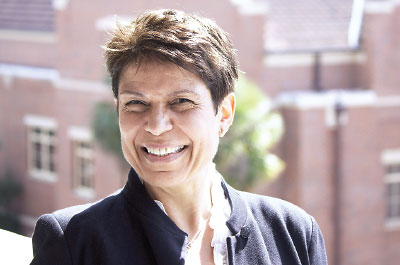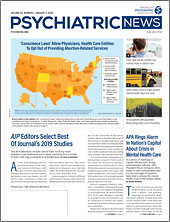Oluwanifemi Shola-Dare’s life had gone off track. During her freshman year of college as an international student from Nigeria, she went through financial difficulties and temporary homelessness and feared her visa might be terminated. At the start of her sophomore year, she began to experience major depression. “I felt helpless,” she said. She transferred to Spokane Community College in Washington state, where she reached out to the campus health clinic for help. She waited a full month for her first appointment with a psychiatric nurse practitioner.
“I was frustrated,” she said. “I felt as though, if I had been in crisis, my story would have probably ended differently. That motivated me to start the Mental Health Awareness Club.” She hoped the club would “bridge the gap between students and the mental health resources available.”
Shola-Dare participated in Mental Health America’s 2018-2019 College Mental Health Innovation Council (CMHIC). The goal of the program is to shine a spotlight on student leaders across the country who have created initiatives that fill gaps in traditional supports and services on campus, said Kelly Davis, director of peer advocacy, supports, and services with Mental Health America.
“The traditional way of doing things is obviously not enough,” Davis said, adding that many students, especially those who have experienced mental illness, have great ideas that could help their peers. No other generation, she explained, can exactly understand what it’s like to be a college student today. Being saddled with huge amounts of student loan debt and navigating rapid advances in technology and social media are just two of the stressors many face.
Between 2007 and 2017, the rates of college students receiving mental health treatment and lifetime diagnoses of a mental illness increased significantly, according to a study published in January in Psychiatric Services.
“This current generation attending college seems to report more stress and anxiety than previous generations,” said Ludmila De Faria, M.D., a clinical assistant professor of psychiatry and a staff psychiatrist at the Florida State University Student Health Center in Tallahassee and co-chair of APA’s Caucus on College Mental Health. She said initiatives that support communication about mental health and connect students to resources are valuable, though she cautioned against students holding peer support groups without the supervision of a mental health professional.
For many of the students in CMHIC, their experience with mental illness or that of their friends inspired them to do something to help their peers. Olivia Lubarsky, a senior at Towson University, had depression her freshman year and turned to athletics as her outlet.
When she ruptured her Achilles tendon, she “instantly noticed a disconnect,” she said, between the support and treatment she received for her mental illness compared with her physical injury. She soon started the Own Your Roar initiative for student athletes.
“At Towson, and across the NCAA [National Collegiate Athletic Association], many student athletes do not have mental health professionals to see within the confines of their athletic department,” Lubarsky said. “Counselors on and off campus are not familiar with the unique demands that our various sports present, and so student athletes oftentimes feel unheard and misunderstood.”
Own Your Roar hosts monthly social forums for student athletes, has dedicated games to increase mental health awareness, and organized events like a relaxation night before final exams.
The point of many of the CMHIC initiatives is to facilitate conversations and end stigma. Shola-Dare created the Mental Health Awareness Club for exactly those reasons, as well as to supplement the resources offered by her community college. The club started holding support groups, which a mental health professional also attended. As it was held on a community college campus, participants ranged in age from 17 to 50.
“It really brought into perspective that mental illness has no age limit,” Shola-Dare said. “You can be as young as 17, going through a stressful situation and not know what to do, or you can be 50 and find yourself in college and not know how to integrate yourself back into the community. I think it really helped having such a diverse population.”
De Faria said it can be powerful for students to learn that mental health issues affect “everybody across the board,” she said. These initiatives encourage groups of students who wouldn’t usually interact to share experiences, and it helps students to know that they are not alone in their struggles.
For both Shola-Dare and Lubarsky, their respective experiences have shaped their plans for the future. Lubarsky wants to obtain a master’s degree in public policy and a law degree to further the Own Your Roar initiative and impact legislation. Shola-Dare is now a junior at Washington State University, where she is studying neuroscience. She hopes to take her advocacy experience back to Nigeria. ■
More information on the College Mental Health Innovation Council is posted
here. “Increased Rates of Mental Health Service Utilization by U.S. College Students: 10-Year Population-Level Trends (2007–2017)” is posted
here.

